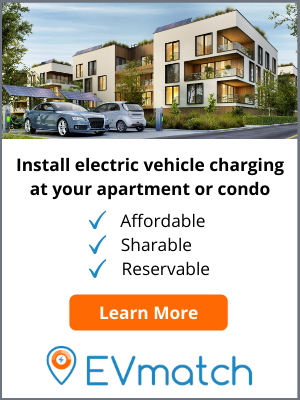Blog
Electrifying Chicago’s Urban Residential Neighborhoods: 3 New Community Chargers
June 2, 2021
Post Author

3 New Community Electric Vehicle Chargers in Chicago
We at EVmatch envision a distributed, equitable, and carbon-free energy economy that is not only available for those with money and resources, but for everyone. It is exciting to see the variety and affordability of electric vehicles growing at the rate that they are, but we know it’s not enough. Until we bring infrastructure to the places where people live and work, we won’t achieve true accessibility.
That’s why part of our mission at EVmatch is to make charging easy, reliable, and accessible to all. Since we started our work 4 years ago, we’ve made it easier to charge all over the country, including places typically considered to be “charging deserts” like parts of Texas, Michigan, and Illinois. Today, we are excited to share that we are making it easier than ever for Chicagoans to charge!
Clean Energy in Irving Park
In partnership with Community Charging, headed by Vanessa Perkins, and funded by the Keeling Curve Prize for Global Warming Mitigation (which we were proud to receive last summer), EVmatch has a new publicly-available charging station located at St. John’s Episcopal Church in Chicago’s Old Irving Park neighborhood. As the charging station host, St. John’s listed its charger on EVmatch to make driving EVs easier for community members, many of whom rent or live in multi-family housing without a reliable place to charge, or other Chicagoans visiting the neighborhood in electric cars and needing a spot to charge up. St. John’s charging station comes on the heels of two chargers recently installed at Plant Chicago, a collaborative community organization focused on cultivating circular economies.
Chicago-based Community Charging takes a pragmatic approach to increasing charging accessibility by utilizing existing infrastructure in urban residential neighborhoods (like community businesses and places of worship) as new charging locations. In addition to filling public charging deserts, the local initiative is working to support local EV awareness, create local clean job opportunities, and empower local hosts to support electrification and clean transportation.
Illinois is all in
Beyond these community-based measures, it is also encouraging to see investment in electric vehicle charging at both the municipal and state level. Last April, the Chicago City Council passed an ordinance requiring all new residential buildings (with five or more units), as well as new commercial properties with 30 or more parking spaces, to have 20% of any supplied parking spaces Electric Vehicle Supply Equipment (EVSE) ready. At the state level, the proposed Clean Energy Jobs Act includes incentives for electric vehicle charging for medium and heavy-duty vehicles across the state. It would also create the EV Access for All program, which will support low-income electric car-sharing.
Arthur Burton of AMB Renewable Energy, a company involved with the installs at both St. John’s and Plant Chicago, is optimistic about where things are headed. “Now that we have a new administration that believes in climate change, there are thoughtful solutions being offered in resolving this issue,” Burton said. “I believe we have the support that is needed to research and develop best practices for reducing carbon emission. The mass production and rollout of (EV) is a prime example of the uptick and movement in the industry.”
Investment: from stakeholders to people
The fact that there is legislation at multiple levels supporting electric vehicle access is critical. But another important part of the work is building knowledge within Black and Brown communities about electric vehicles and clearing up misconceptions about the expenses involved. In a recent Energy News Network article, EVHybridNoire CEO Terry Travis talks about the impact of increased visibility and education about the cost savings of EVs.
“The work that we are doing is really to address this, to help folks understand that there are electric vehicles at every price point,” Travis said. There are used electric vehicles for sale starting at $5,000, he said. “And so, the single mom, single dad, or grandfather, uncle — the community can benefit from any transportation that requires less maintenance, requires lower operational fuel costs.”
“We do a lot of work around ensuring that communities … are included in the conversation before infrastructure is deployed. So the community can see the asset and understand that it’s a community asset.”
So next time you’re passing through Chicago, keep your eyes out for all the new EV charging infrastructure and rest assured that you will have plenty of charging options!








